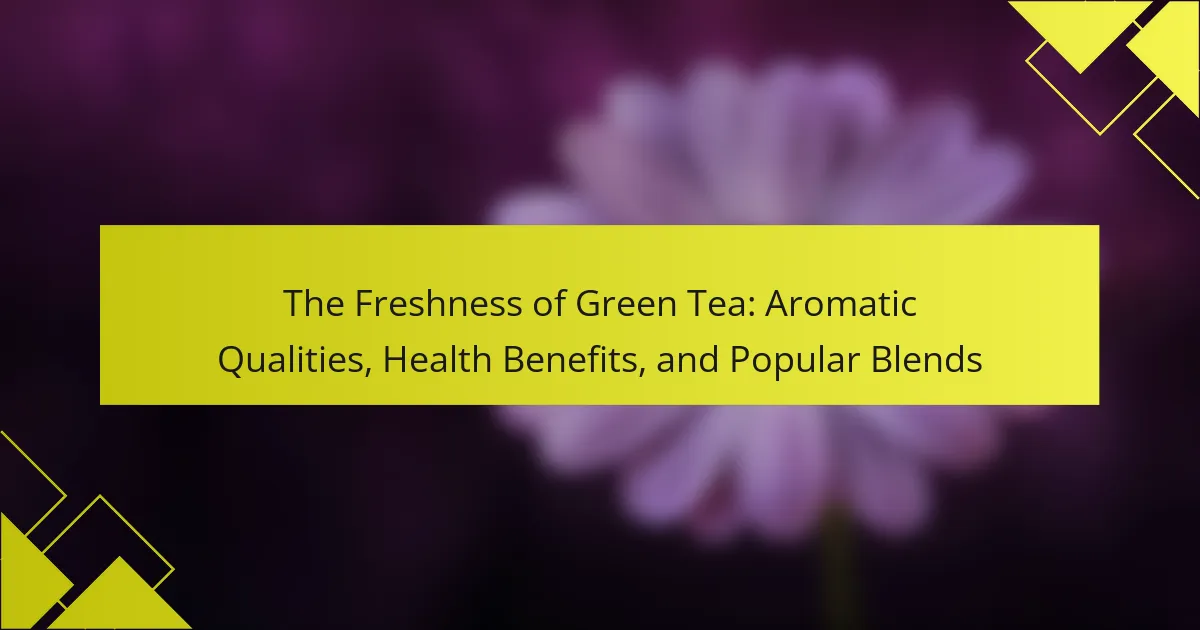
What is the Allure of Rose?
The allure of rose lies in its captivating fragrance and rich symbolism. Roses are renowned for their complex scent profile, which can evoke feelings of love and tranquility. The essential oils extracted from roses contain aromatic compounds that have been shown to reduce stress and enhance mood. Historical texts indicate that roses have been cherished for centuries in various cultures for their beauty and fragrance. Studies also suggest that the scent of rose can lower anxiety levels and promote relaxation. The rose’s association with romance and beauty further amplifies its allure, making it a timeless symbol in art and literature.
What are the key fragrance notes of rose?
The key fragrance notes of rose include floral, fruity, and green elements. Floral notes are the most prominent, offering a rich and romantic scent. Fruity notes can include hints of raspberry or citrus, adding freshness. Green notes contribute a crisp, herbaceous quality, enhancing the overall profile. These notes combine to create a complex and alluring fragrance. Roses are often used in perfumery for their distinctive aroma. The balance of these notes can vary among different rose varieties.
How do different varieties of rose influence fragrance notes?
Different varieties of rose significantly influence fragrance notes. Each rose variety has unique chemical compositions that produce distinct scents. For example, Damask roses are known for their rich, spicy fragrance. In contrast, Bourbon roses offer a sweet, fruity aroma. The hybrid tea roses typically have a classic rose scent with hints of citrus. Research indicates that the concentration of certain compounds, such as geraniol and phenylethyl alcohol, varies across rose types, affecting their overall fragrance. This variability contributes to the complexity of rose scents in perfumes and essential oils. Thus, the choice of rose variety is crucial in fragrance formulation.
What role do top, middle, and base notes play in rose fragrance?
Top, middle, and base notes are essential components of rose fragrance. Top notes are the initial scents perceived upon application. They are typically light and fresh, creating the first impression of the fragrance. Middle notes, also known as heart notes, emerge after the top notes fade. They provide depth and character, often featuring the full essence of rose. Base notes are the final scents that linger after the fragrance settles. They are rich and long-lasting, grounding the rose fragrance and enhancing its complexity. Together, these notes create a harmonious olfactory experience that evolves over time.
Why is rose considered an emotional fragrance?
Rose is considered an emotional fragrance due to its ability to evoke feelings of love and nostalgia. The scent of rose has been linked to emotional healing and mental well-being. Studies show that rose oil can reduce anxiety and promote relaxation. The fragrance stimulates the limbic system, which is responsible for emotions. Historical texts highlight rose’s use in rituals and celebrations, reinforcing its emotional significance. Aromatherapy often incorporates rose for its mood-enhancing properties. This combination of cultural and scientific factors solidifies rose’s status as an emotional fragrance.
How does the scent of rose affect mood and emotions?
The scent of rose positively affects mood and emotions. It has been shown to reduce stress and anxiety levels. Research indicates that inhaling rose fragrance can lead to feelings of calmness. A study published in the Journal of Alternative and Complementary Medicine found that rose oil significantly decreased anxiety in participants. Additionally, the aroma of rose can enhance feelings of happiness and well-being. This is supported by evidence that suggests floral scents, including rose, evoke pleasant memories. The emotional benefits of rose scent make it a popular choice in aromatherapy.
What psychological benefits are associated with rose fragrance?
Rose fragrance is associated with several psychological benefits. It is known to reduce stress and anxiety levels. Studies indicate that inhaling rose scent can promote relaxation. This effect is linked to the release of serotonin, a mood-enhancing neurotransmitter. Rose fragrance also enhances mood and emotional well-being. Research shows that it can alleviate symptoms of depression. Additionally, it is believed to improve cognitive function and memory. The soothing properties of rose fragrance contribute to better sleep quality. Overall, rose fragrance supports mental health by fostering a sense of calm and happiness.
What are the historical and cultural significances of rose fragrance?
Rose fragrance has significant historical and cultural importance across various civilizations. In ancient Egypt, roses were associated with love and beauty, often used in perfumes and rituals. The Greeks linked roses to Aphrodite, the goddess of love, symbolizing romance and passion. In Roman culture, rose petals adorned banquet tables, signifying luxury and indulgence. During the Middle Ages, roses were used in religious ceremonies, representing purity and devotion. In literature, roses frequently symbolize love and beauty, appearing in works by Shakespeare and other poets. The use of rose fragrance in traditional medicine dates back centuries, recognized for its calming and healing properties. Today, rose fragrance continues to evoke emotions and memories, maintaining its cultural relevance.
How has rose been used in various cultures throughout history?
Roses have been used in various cultures throughout history for symbolism, medicine, and decoration. In ancient Egypt, roses were associated with love and were used in perfumes and cosmetics. The Greeks linked roses to the goddess of love, Aphrodite, and used them in rituals. In Rome, roses symbolized beauty and were often used in celebrations and feasts. In traditional Chinese culture, roses have been used in herbal medicine for their calming effects. In medieval Europe, roses were often depicted in art and literature, symbolizing purity and love. Additionally, roses have been used in religious ceremonies across cultures, symbolizing sacrifice and devotion. Their historical significance is evident in literature, art, and cultural practices globally.
What symbolic meanings are associated with rose fragrances?
Rose fragrances symbolize love, beauty, and passion. They are often associated with romantic gestures and deep emotional connections. Historically, roses have been used in various cultures to represent purity and innocence. The color of the rose can alter its symbolic meaning; red signifies love, while white represents purity. Additionally, rose fragrances evoke feelings of comfort and nostalgia. Studies show that scents can trigger memories and emotions, reinforcing the symbolic meanings of roses. The presence of rose fragrances in rituals and celebrations further emphasizes their significance in human relationships.
How can rose fragrance enhance personal well-being?
Rose fragrance can enhance personal well-being by promoting relaxation and reducing stress. The scent of rose has been shown to lower cortisol levels, which are linked to stress. In aromatherapy, rose oil is often used for its calming properties. Research indicates that inhaling rose fragrance can improve mood and alleviate feelings of anxiety. A study published in the Journal of Alternative and Complementary Medicine found that participants reported higher levels of relaxation after exposure to rose aroma. Additionally, rose fragrance can evoke positive memories and emotions, contributing to overall emotional health.
What are the therapeutic benefits of using rose in aromatherapy?
Rose in aromatherapy offers several therapeutic benefits. It is known for its calming effect on the mind and body. The scent of rose can reduce anxiety and promote relaxation. Studies indicate that rose oil may help alleviate symptoms of depression. It is also recognized for its ability to enhance mood and emotional well-being. Additionally, rose oil has anti-inflammatory properties, which can be beneficial for skin conditions. Its use can improve sleep quality, making it a popular choice for nighttime routines. Overall, rose in aromatherapy provides a holistic approach to emotional and physical health.
How can rose fragrances improve mental clarity and relaxation?
Rose fragrances can enhance mental clarity and relaxation through their aromatic properties. The scent of rose is known to reduce stress and anxiety levels. This calming effect can lead to improved focus and concentration. Studies show that inhaling rose oil can lower cortisol levels, a hormone linked to stress. Additionally, rose fragrances stimulate the limbic system, which plays a crucial role in emotions and memory. This stimulation can foster a sense of calmness and well-being. The soothing aroma of rose can also promote better sleep quality, further aiding relaxation. Overall, rose fragrances serve as a natural tool for enhancing mental clarity and relaxation.

What are the best pairings for rose fragrance?
The best pairings for rose fragrance include citrus, spices, and other florals. Citrus notes like bergamot and lemon enhance rose’s freshness. Spices such as cardamom and cinnamon add warmth and depth. Other florals like jasmine and peony complement rose’s romantic essence. These pairings create a balanced and harmonious scent profile. Studies show that combining these notes can enhance emotional responses, promoting feelings of joy and relaxation.
Which scents complement rose fragrances effectively?
Citrus scents, such as bergamot and lemon, complement rose fragrances effectively. These scents add brightness and freshness to the floral notes. Spicy scents like cardamom and cinnamon enhance the warmth of rose. They create a more complex and layered aroma. Green notes, such as basil and mint, provide a crisp contrast to rose. This combination can evoke a sense of nature and vitality. Woody scents, particularly sandalwood and cedar, ground the sweetness of rose. They bring depth and sophistication to the overall fragrance profile. Additionally, fruity scents like raspberry and peach can create a playful and inviting blend with rose.
What are the best floral pairings with rose?
The best floral pairings with rose include jasmine, peony, and lavender. Jasmine complements rose with its sweet, exotic fragrance. Peony adds a fresh, airy quality that enhances the rose’s richness. Lavender introduces a calming, herbal note that balances the floral sweetness. These pairings create harmonious blends in perfumes and floral arrangements. Combining these flowers can evoke a range of emotions, from romance to tranquility. Each pairing highlights different aspects of the rose, making it versatile in various contexts.
How do citrus and spice notes enhance rose fragrance?
Citrus and spice notes enhance rose fragrance by adding brightness and warmth. Citrus notes like bergamot and lemon introduce fresh, zesty elements. These notes create a vibrant contrast to the soft floral aspects of rose. Spice notes such as cardamom and cinnamon add depth and complexity. They provide a warm, inviting character that complements the rose’s sweetness. This combination results in a more rounded and intriguing fragrance profile. The interplay of these notes can evoke a sense of freshness and sophistication. This layering effect makes the overall scent more dynamic and appealing.
What are the best occasions to use rose fragrances?
Rose fragrances are best used on romantic occasions. Their floral notes evoke feelings of love and affection. They are ideal for date nights or anniversaries. Weddings also benefit from the enchanting scent of roses. Additionally, rose fragrances suit formal events and galas. They create a sophisticated and elegant atmosphere. Everyday wear can also incorporate rose scents for a touch of luxury. Lastly, self-care routines, such as relaxing baths, are enhanced with rose fragrances.
How can rose fragrances be incorporated into daily routines?
Rose fragrances can be incorporated into daily routines in various ways. Using rose-scented body lotions or creams after bathing adds a fragrant layer to your skin. Spraying rose water on the face can refresh and hydrate throughout the day. Adding rose essential oil to a diffuser creates a calming atmosphere at home. Wearing rose-scented perfumes enhances personal fragrance. Using rose-infused candles during relaxation time can elevate the mood. Incorporating rose tea into your morning routine provides a soothing start to the day. Each method allows for the integration of rose fragrances into everyday life.
What special events are ideal for wearing rose fragrances?
Rose fragrances are ideal for special events such as weddings, anniversaries, and romantic dates. These occasions often celebrate love and affection, making rose scents a fitting choice. The floral notes evoke feelings of romance and elegance. Additionally, rose fragrances are suitable for formal gatherings and galas. Their sophistication enhances the overall atmosphere of such events. Many people associate roses with beauty and grace, reinforcing their popularity in these contexts. Studies show that floral scents can uplift mood and create positive emotional responses. Therefore, wearing rose fragrances during significant moments can enhance the experience for both the wearer and those around them.

How can one choose and use rose fragrances?
To choose and use rose fragrances, consider your personal scent preferences first. Identify the specific type of rose fragrance that appeals to you, such as fresh, spicy, or sweet. Test various rose fragrances on your skin to see how they interact with your body chemistry. Choose a fragrance concentration that suits your needs, like eau de parfum for longevity or eau de toilette for a lighter scent. Apply rose fragrance to pulse points, such as wrists and neck, for optimal scent diffusion. Layering rose fragrance with complementary scents can enhance the overall experience. Store rose fragrances in a cool, dark place to maintain their quality. Regularly check for any changes in scent to ensure freshness.
What factors should be considered when selecting a rose fragrance?
When selecting a rose fragrance, consider the scent profile, concentration, and personal preference. The scent profile includes the specific notes present, such as floral, fruity, or woody. Concentration affects the longevity and intensity of the fragrance. Personal preference is crucial, as individual tastes vary widely. Additionally, skin chemistry can alter how a fragrance smells on different people. Seasonal suitability may also influence the choice, as some fragrances are more appropriate for warmer or cooler weather. Finally, the brand reputation and sourcing of the rose can impact the overall quality of the fragrance.
How do personal preferences influence the choice of rose fragrance?
Personal preferences significantly influence the choice of rose fragrance. Individuals often select fragrances based on their emotional connections and past experiences with specific scents. For example, some may prefer sweeter rose fragrances due to nostalgic memories of childhood. Others might gravitate towards more earthy or musky notes, reflecting their personal tastes and lifestyle choices.
Cultural background also plays a role in fragrance preference. Different cultures associate various scents with specific emotions or occasions. Studies indicate that personal preferences can be shaped by factors such as age, gender, and social environment.
Research by the Fragrance Foundation shows that 70% of consumers choose fragrances that evoke positive emotions. This highlights the importance of emotional resonance in fragrance selection. Ultimately, personal preferences create a diverse landscape of rose fragrance choices, influenced by individual experiences and cultural contexts.
What should be considered regarding concentration and form (e.g., oil, perfume)?
Concentration and form are crucial when selecting rose fragrances. Different forms such as oil, perfume, or essential oil have varying concentrations. Higher concentration products, like perfumes, provide longer-lasting scents. Oils often have a more intense aroma due to their higher concentration. The form also affects application methods and skin absorption. Perfumes typically last longer on the skin compared to lighter forms. Essential oils require dilution before application to avoid skin irritation. Understanding these factors ensures optimal fragrance experience and safety.
What are some practical tips for applying rose fragrances?
Apply rose fragrances by targeting pulse points. These areas include the wrists, neck, and behind the ears. Fragrance lasts longer when applied to warm skin. Moisturizing the skin before application enhances scent longevity. Use a light spritz for a subtle effect. Layering with unscented lotion can create a lasting base. Avoid rubbing the fragrance after application, as it can alter the scent. Consider reapplying throughout the day for a fresh burst.
How can one maximize the longevity of rose fragrance on the skin?
To maximize the longevity of rose fragrance on the skin, apply it to moisturized skin. Fragrances last longer on hydrated surfaces. Use an unscented lotion or cream before applying the rose scent. This creates a barrier that holds the fragrance. Additionally, apply the fragrance to pulse points. These areas emit heat, enhancing the scent’s projection. Common pulse points include wrists, neck, and behind the ears. Layering products can also help. Use rose-scented body wash or lotion before the perfume. This reinforces the fragrance and prolongs its presence. Lastly, avoid rubbing the fragrance after application. Rubbing can break down the scent molecules, reducing longevity.
What are the best practices for layering rose fragrances with other scents?
Layering rose fragrances with other scents involves strategic combinations for balance and harmony. Start by selecting complementary scents such as citrus, sandalwood, or vanilla. These notes enhance the rose without overpowering it. Apply the rose fragrance first, allowing its essence to settle. Follow with the second fragrance, ensuring it harmonizes with the rose’s floral profile. Test small amounts to find the right balance, as too much can create a discordant blend. Additionally, consider the concentration of each fragrance; lighter scents can be layered with denser ones for a more nuanced aroma. This method enhances the overall olfactory experience while showcasing the beauty of rose fragrances.
The primary entity of this article is the rose, specifically its fragrance and associated benefits. The article explores the captivating scent profile of rose, detailing its key fragrance notes, including floral, fruity, and green elements, and how different rose varieties influence these notes. It examines the emotional benefits of rose fragrance, highlighting its ability to reduce stress and enhance mood, while also discussing its historical and cultural significance. Additionally, the article provides insights into the best pairings for rose fragrance, practical tips for application, and how to maximize its longevity and effectiveness in daily routines.



